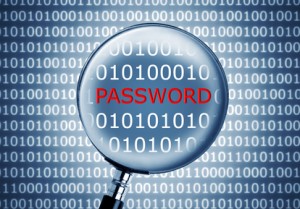 If you envision all hackers waist deep in black and green code as they crack into our personal lives — think again. It turns out we make it far too easy for hackers when we secure our personal information. “Password” and “123456” topped SplashData’s list of the 25 most popular passwords of 2012, so many cybersecurity victims have little to rue as their try to recover their identities.
If you envision all hackers waist deep in black and green code as they crack into our personal lives — think again. It turns out we make it far too easy for hackers when we secure our personal information. “Password” and “123456” topped SplashData’s list of the 25 most popular passwords of 2012, so many cybersecurity victims have little to rue as their try to recover their identities.
While you may not use one of these predictable passwords, you’ve probably thought about it. Varying character restrictions and requirements make keeping track of passwords almost impossible. With the right process, however you can choose unique, unbreakable codes and avoid those “forgot my password” emails.
What’s at Stake?
According to CBSnews.com, Americans reported 279,000 cases of identity theft in 2011, 28,000 more than the previous year. These attacks are good for LifeLock job security but bad for the victims that struggle to recovery compromised data. While technology makes our lives easier to manage, it also exposes sensitive information to ill-willed tech nuts. In many cases, passwords are the only line of defense between our financial details and a predatory hacker, so the process of choosing this verbal moat should be tactful and organized. Some hackers have tools to access password-protected information, but putting up this simple wall will protect you from weaker attacks.
Password Tips
The balance of choosing a password comes down to convenience versus security. Code-cracking software easily deciphers short, alphanumeric passwords, but these entry words are easier to remember. Complex, 8+ character passwords with special characters are less vulnerable to attacks, although the threat is still there, but they are more difficult to type and remember. A complex base password system is even more reliable, using a common base word along with a unique variable, such as the the name of the website. (Ex. b@seballisgr8-gmail, b@seballisgr8-twitter, etc.) With this system, even if one of your properties is exposed, the rest are still secure. It’s difficult to remember, but it can be done.
The best way to secure an online identity is with unique, lengthy strings of characters that not even you know. Instead, you could keep track of these unbreakable passwords through a system like 1Password (1Password Pro for Mac, 1Password for iPad, 1Password for iPhone, iPassword for Windows), which stores all of your passwords behind strongly encrypted software (an added benefit of 1Password is that it can synch between all of your devices and computers so you can have all your passwords with you wherever you go). Of course, keeping all of your information stored in one place has its own risks. If the password to your 1Password account falls into the wrong hands, your entire identity could be up for grabs. Consider a two-factor authentication password for these types of systems.
Protect Yourself
No matter how strong your password, information is always vulnerable to attack on the internet. Check bank accounts and other sensitive accounts  regularly, and if possible, sign up for alerts that email you when your account experiences unusual activity. If one of accounts becomes exposed, change that password along with any other account that’s accessible with that password.
There’s no surefire way to protect your information, but a strong password is a good start. Find your balance between convenience and security. Use this measuring stick: if creating your password doesn’t take a little effort to remember, it probably needs to be stronger.


